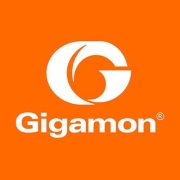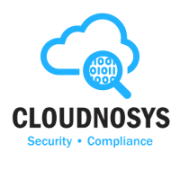Event Monitoring offers organizations real-time insights into their IT environments, enhancing the ability to detect and respond to incidents promptly. It plays a crucial role in ensuring system reliability and performance optimization.
This solution enables businesses to track and analyze events across IT systems, enhancing security and operational efficiency. Equipped with logging capabilities, Event Monitoring helps in identifying anomalies and potential threats. Users often highlight its importance in maintaining compliance and ensuring uninterrupted services, making it a cornerstone for IT governance and risk management.
What are the critical features of this solution?Event Monitoring is widely implemented across industries like finance, healthcare, and manufacturing. In finance, it ensures real-time tracking of transactions to prevent fraud. In healthcare, the solution helps in maintaining the integrity of patient data. Manufacturing facilities use it to enhance equipment reliability and production stability.
Organizations benefit from Event Monitoring as it helps in maintaining system availability, preventing security breaches, and ensuring compliance with regulatory requirements. This contributes to a more resilient IT infrastructure and supports business continuity initiatives.




























Event Monitoring provides real-time visibility into activities within your IT infrastructure. By recording events like logins, file access, and changes to privileges, you can quickly detect anomalies that may indicate security breaches. This proactive approach allows you to respond to threats as they arise, minimizing potential damage and ensuring compliance with security policies.
What are the key features to look for in an Event Monitoring solution?When choosing an Event Monitoring solution, consider features like real-time alerting, comprehensive data logging, user behavior analytics, and custom reporting capabilities. Scalability is crucial as your organization grows. Integration with other security systems enhances its efficiency. Support for compliance reporting can also be essential for meeting regulatory requirements.
How does Event Monitoring assist with compliance requirements?Event Monitoring assists with compliance by providing detailed logs and reporting tools that demonstrate adherence to regulatory standards. It helps organizations track access and changes to sensitive data, ensuring compliance with frameworks such as GDPR, HIPAA, and PCI DSS. This can simplify audits and reduce the risk of penalties associated with non-compliance.
Can Event Monitoring solutions help in improving operational efficiency?Yes, Event Monitoring can significantly enhance operational efficiency by identifying bottlenecks and inefficiencies in IT processes. By analyzing event data, you can gain insights into system performance and user interactions, which helps in optimizing workflows and reducing downtime. Real-time alerts enable prompt action, maintaining smooth operations and reducing resource wastage.
How do you implement an Event Monitoring strategy effectively?To effectively implement an Event Monitoring strategy, start by defining your objectives and what events need to be monitored. Choose a solution that aligns with your organization's size and industry-specific needs. Ensure integration with existing security infrastructure. Train staff on its use and establish a process for responding to alerts. Regularly review and adjust your strategy based on evolving threats and company goals.